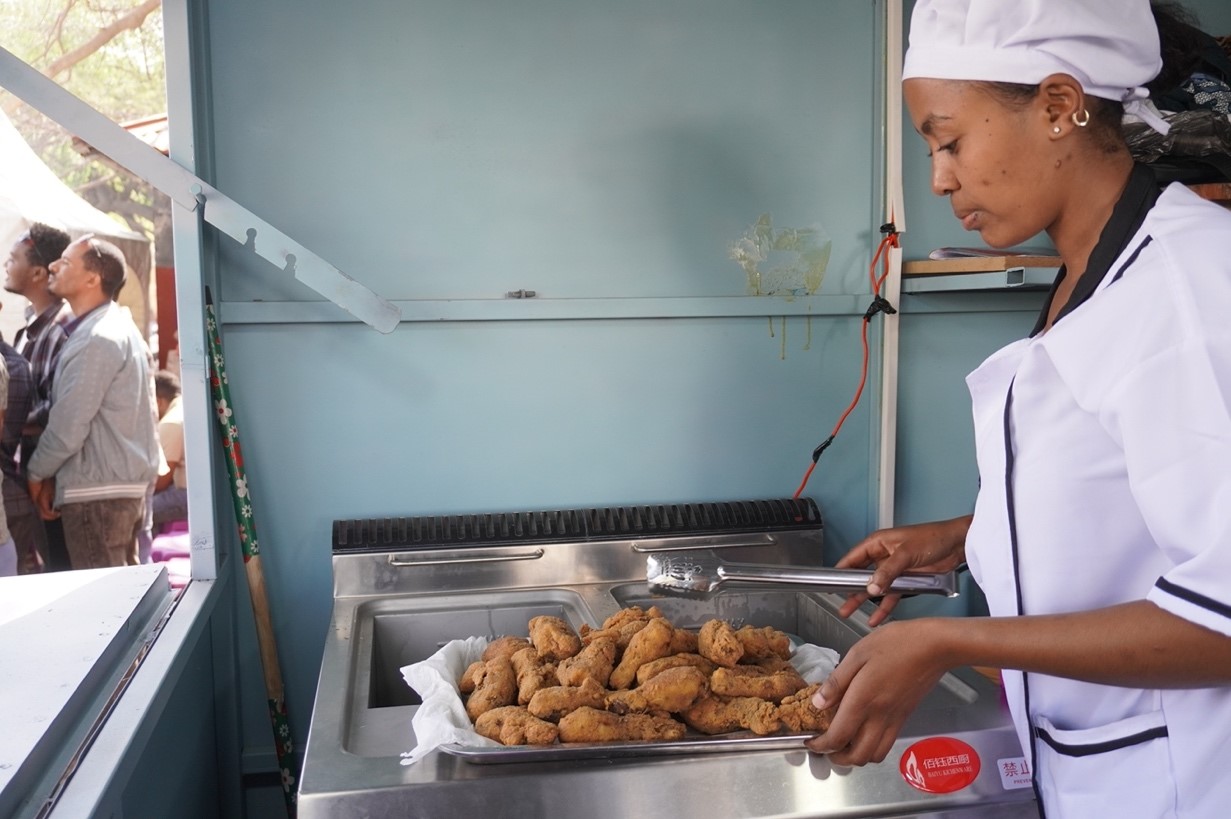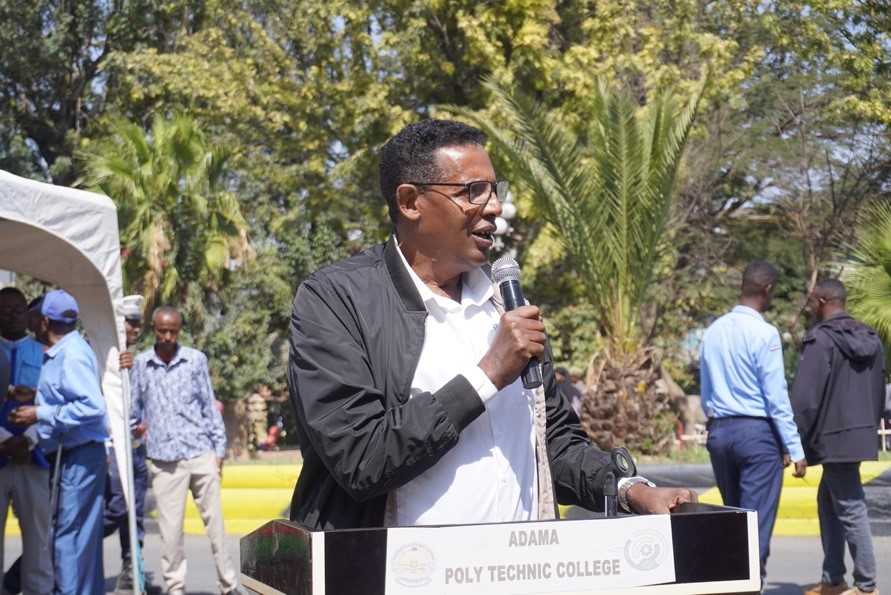

ILRI’s street chicken initiative is empowering youth and boosting nutrition in Ethiopia

The International Livestock Research Institute (ILRI), in collaboration with the Ethiopia Ministry of Labor and Skills (MOLS), has launched an innovative street chicken frying business initiative in the cities of Addis Ababa, Adama, Hawassa and Bahir Dar. This project aims to tackle various challenges simultaneously by promoting the consumption of chicken meat, boosting the local economy, and providing employment opportunities for the youth.
Launched in Adama town of Oromia region 23 January 2024, this program supports nutrition-sensitive interventions in farms and school feeding programs. As part of the project, 45 unemployed youth from the four major cities received comprehensive training in different aspects of the chicken meat frying business. The training included broiler production, business plan preparation, soft skills, and food safety and hygiene.
To help the youth start their businesses, ILRI donated 10 gas and 10 electric stoves to MOLS, valued at USD 43,000. This support is expected to increase the demand and supply of chicken meat in urban areas while creating income opportunities for the youth and improving their entrepreneurial skills. The project also aligns with national goals to enhance food security and reduce poverty in Ethiopia.
This initiative is part of the Tropical Poultry Genetic Solutions (TPGS) program, which is one of ILRI's efforts to enhance livelihoods and nutrition through the promotion of poultry and poultry products.
Ethiopia faces significant nutritional challenges, particularly among young children, with high rates of wasting, stunting and malnutrition. Addressing these issues requires improving agricultural productivity, ensuring access to diverse and nutritious foods, and strengthening healthcare and social protection systems. By implementing initiatives like self-employed chicken frying businesses, Ethiopia can make tangible progress in combating malnutrition and creating a healthier future for its population.
‘Initiatives like the street chicken frying business are crucial for addressing multiple challenges in Ethiopia. By empowering youth with skills and resources, we can enhance food security, stimulate local economies, and tackle malnutrition effectively. This program exemplifies how targeted interventions can create sustainable livelihoods and foster economic growth,’ said Tadelle Dessie, the TPGS program leader.

Promoting the engagement of the private sector and government collaboration in scaling up the street chicken frying business in Ethiopia is essential for driving economic growth, ensuring food safety, providing resource access, expanding markets, achieving sustainable development, fostering innovation, developing infrastructure, and enhancing cultural and social value. This collaborative approach can transform street food vending into a thriving, safe, and sustainable industry, benefiting vendors, consumers, and the broader economy.




